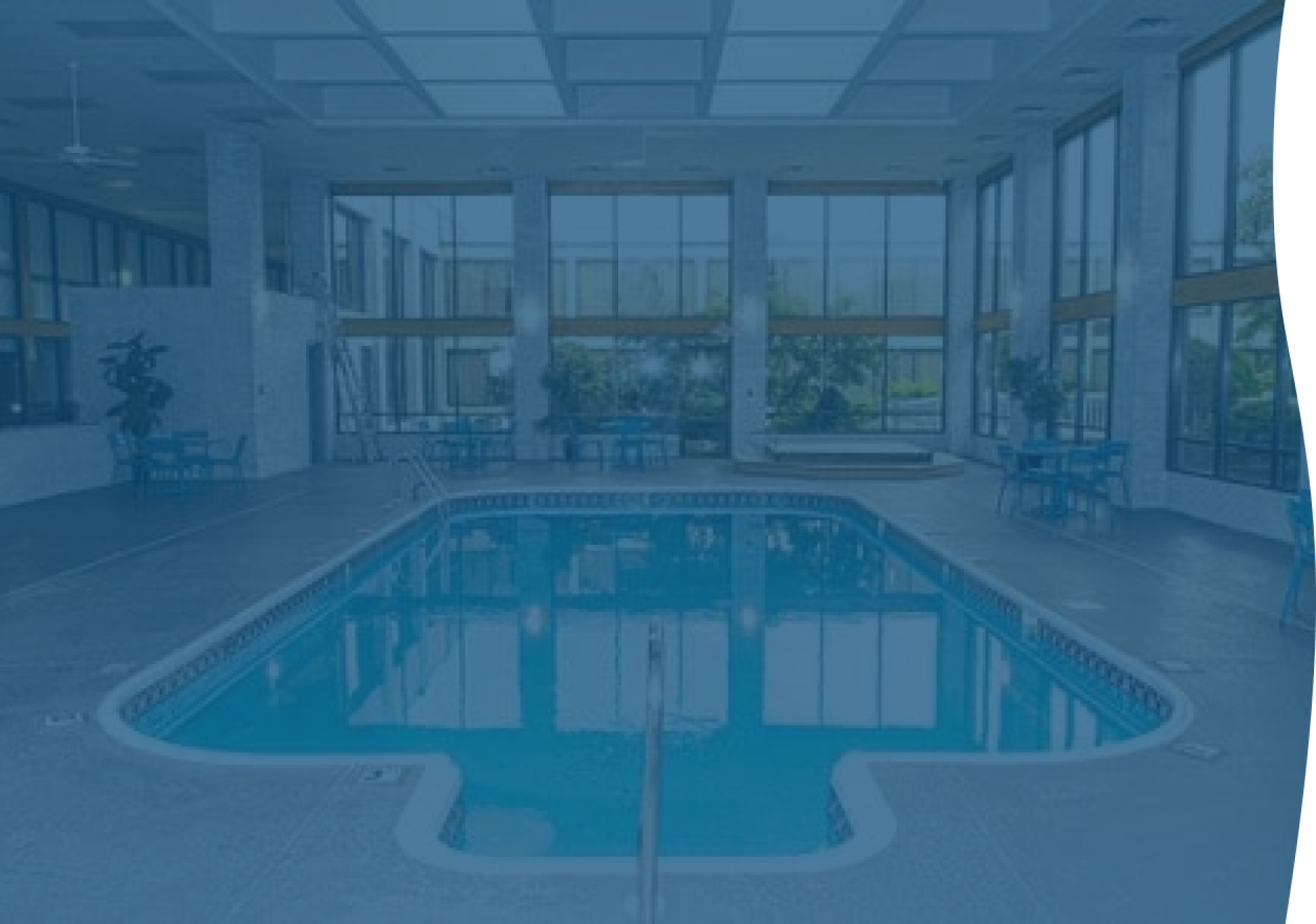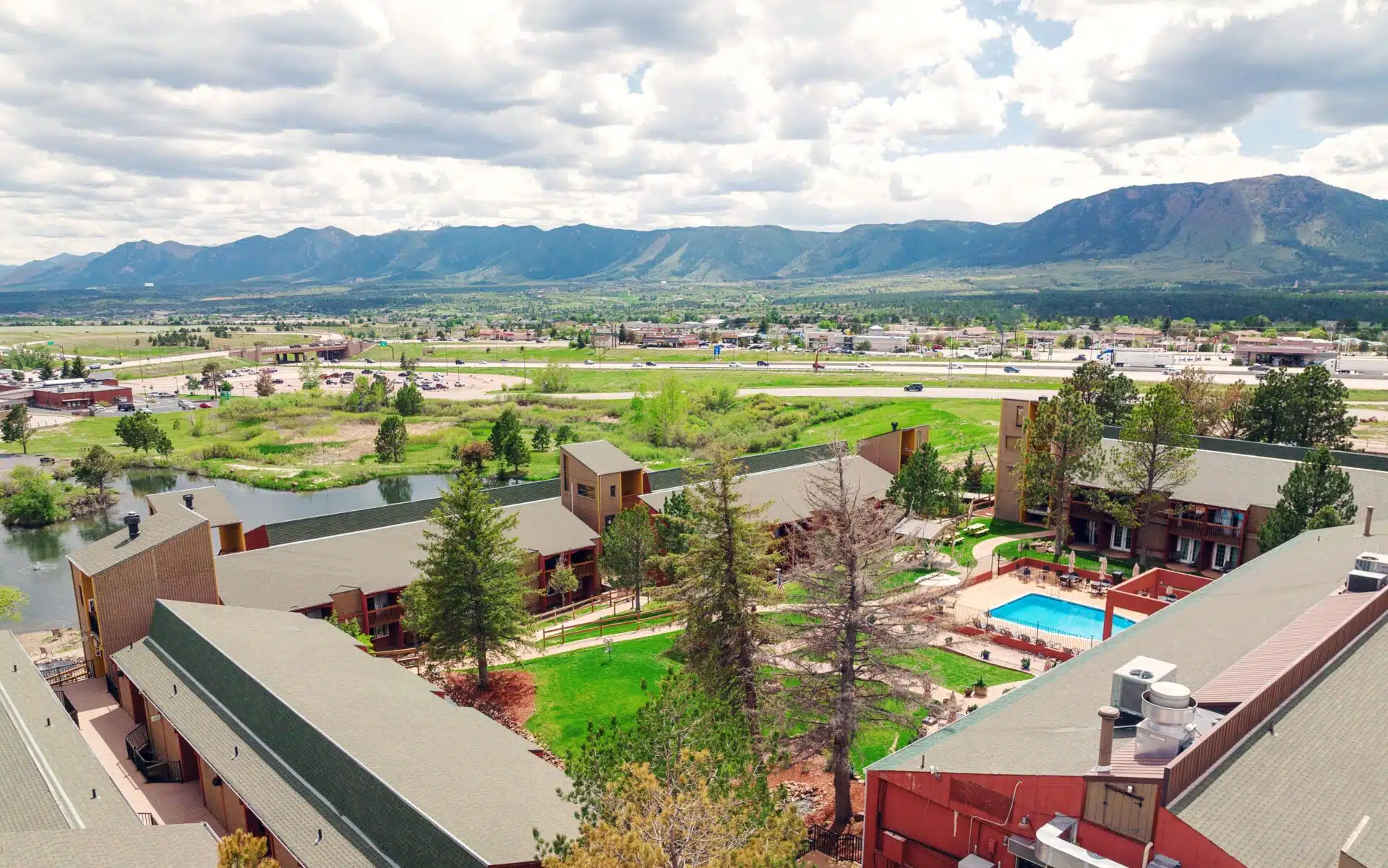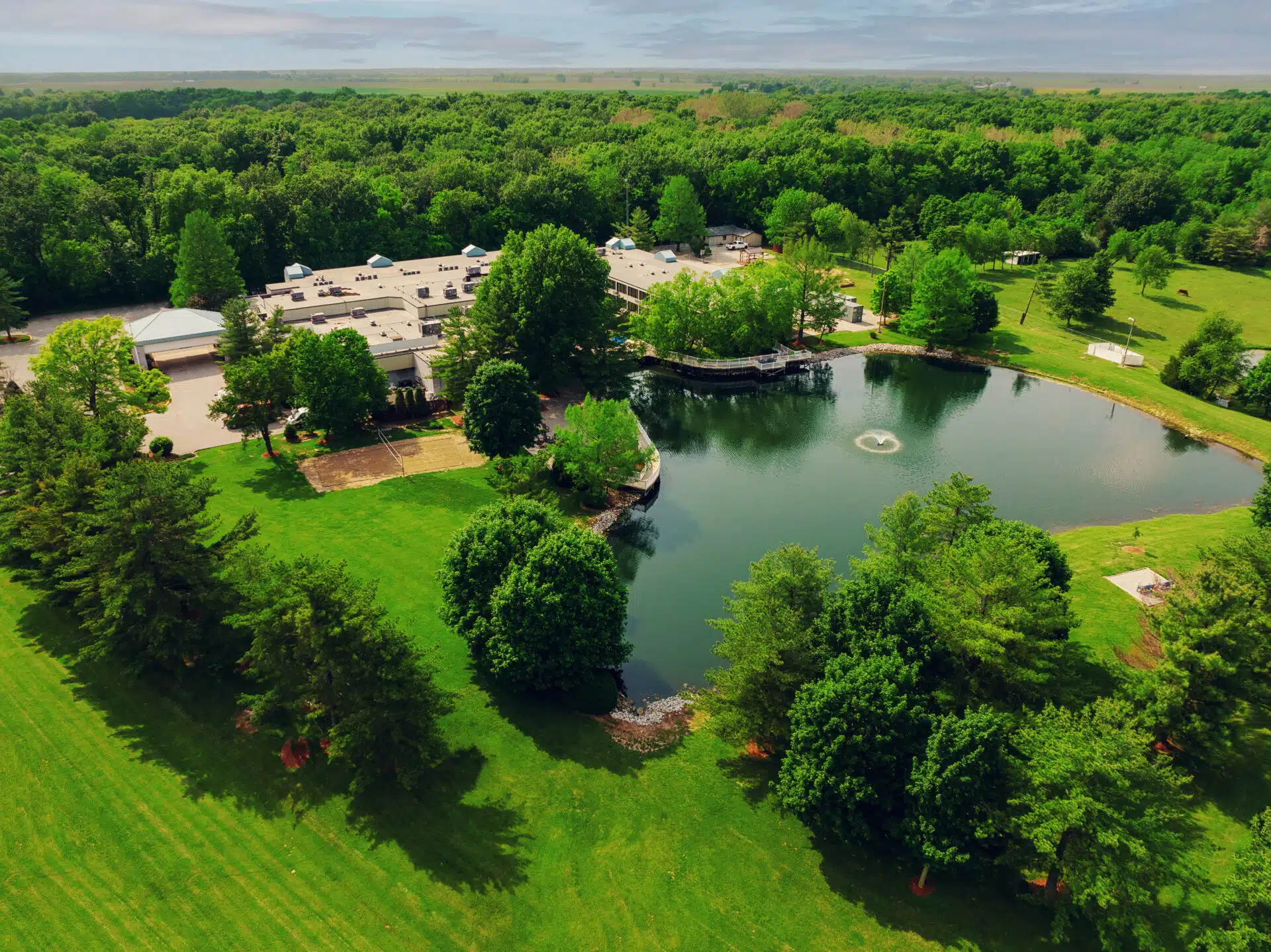Normal, Illinois, is a college town in the middle of the Praire State. It is the smaller half of the Bloomington-Normal area.
It’s home to Illinois State University and Illinois Wesleyan University.
It’s also a region—like many across the U.S.—that has been troubled by the opioid epidemic.
Statewide, nearly four out of every five overdose deaths involved opioids. In 2018, that amounted to 2,169 fatalities. In 2020, 2,944 died of opioid overdoses, up 33% from 2019.
Deaths caused by synthetic opioids like fentanyl continued to rise, while heroin and prescription opioids dropped. (Across the U.S. nearly 70% of overdose deaths included opioids.)
McLean County’s 2016 community health needs assessment found that:
- 26.9% of adults are considered at risk for binge drinking (higher than the state’s 21.8% average).
- 39.3% of car crash deaths involved alcohol.
- 30% of eighth-graders and 65% of 12th graders reported using any substance (alcohol, inhalants, cannabis).
- 64.8% of 12th-graders admitted to using alcohol.
Among unhealthy behaviors, the three highest-ranking were drug abuse, alcohol abuse, and poor eating habits. Younger people reported drug use as a problem, particularly among lower-income, lesser-educated individuals. Alcohol was rated as more of a problem for lower-income and homeless people. White men with higher incomes and higher education levels reported poorer eating habits.
Student Substance Use Disorder in Normal, Illinois Colleges
A number of colleges are in and around Normal, Illinois, including:
- Illinois State University, a public 4-year school
- Illinois Wesleyan University, a private nonprofit 4-year
- Heartland Community College, a public 2-year school
ISU has resources for its students including counseling, support groups, and substance-free lifestyle floors. IWU has resources, too, for students who may need counseling or other help dealing with substance or alcohol abuse or addiction.
Among U.S. college students:
- 7.9% used marijuana daily (20 or more times in the last 30 days) in 2020, up 3.3% over the past five years.
- Annual use of hallucinogens (LSD, psilocybin mushrooms) has gone up 8.6% from 2019–2020.
- Drinking went down in 2020, from 56% in 2019 to 28% in 2020, possibly due to COVID-19, since numbers from 2015–2019 were pretty level.

Our closest facility is in Illinois
19067 W Frontage Rd, Raymond, IL 62560-505
Talk to Our Intake Coordinators
What to Look for When Choosing Rehabs in Normal, Illinois
There are a lot of questions that may arise when deciding on a drug and alcohol rehab center in Normal, IL. Insurance coverage is one thing to note, but other factors are important, too, from the types of treatments a place offers to the demographics it serves.
Accreditation
It’s a good idea to check if the drug or alcohol rehab you are considering is licensed and accredited. The licensing and accrediting authorities (Joint Commission and LegitScript are two examples) ensure a facility is current with staff training, patient care procedures, and more. When a center has such badges on its website, it means they’ve passed inspections and have done the extra legwork to provide top care.
The rehab center can provide more information on what certifications it has, or that information can be found online.
Demographics
Demographic data paints a picture of an area, of the people who live there. It considers age groups, religion, gender, culture, and more. When rehabs offer care that is more geared to the individual, be it their sexual orientation, their cultural background, or whether they’re a veteran (to cite just three examples), that information can be used to shape treatment.
Normal, Illinois, is predominantly white (approximately 82%, according to 2019 U.S. Census data), but that also means nearly one-fifth of the population is another race or ethnic group.
Someone Black, Asian, or Hispanic, or someone who lives in a household where English isn’t the primary language, may benefit from more culturally competent care, which considers their values and norms. When those factors are considered as a patient is being treated, they tend to feel more respected, heard, and understood. That can keep people more invested in their recovery.
Patient-to-Staff Ratio
The patient-to-staff ratio is the number of patients every nurse or doctor is assigned under their care. A lower ratio means each staffer has fewer patients to attend. That can result in a better understanding which can lead to a better treatment outcome. Consider comparing rehabs between different centers, such as a treatment center in Springfield.
Inpatient Drug Rehab in Normal, Illinois
A substance use disorder center that offers comprehensive care usually offers it in three stages. First, there’s an evaluation, then treatment followed by aftercare.
- Evaluation. This happens during intake. Here, the patient gets a full exam, including lab work. This will determine any physical or psychological problems. From there, a treatment plan will be designed.
- Treatment. This usually occurs in two stages. Stage one will be detoxification, where the patient is weaned off drugs. Medication may be used to ensure it happens in safety and comfort. Once the patient is clear of substances and medically stable, they’ll begin treatment, which usually is a mix of support groups and psychotherapies.
- Aftercare. Here, the patient is prepared for life after rehab. During treatment, they’ll have learned coping strategies to prevent relapse, but they’ll also be connected with counselors so they can continue with outpatient therapy as well as peer groups for added support.
Aftercare Planning Procedures
Rehab doesn’t end once a person checks out of the facility. Recovery is an ongoing process, and aftercare is a big part of that. That’s when a rehab center prepares the patient for life after rehab. Some ways a rehab might help include:
- Relapse prevention. A person sometimes relapses due to addiction triggers, so relapse prevention will help by teaching the patient how to better manage them. The bulk of that will have been addressed in rehab, but guides and other materials may serve as helpful reminders.
- Referrals. For the patient who lives out of the area, the rehab center will provide them with local support options. Those can be support groups for them to attend weekly (or as often as needed) or contact information for counselors and therapists so they can continue with their recovery.
- Continuing care. Some patients, particularly ones who live near the rehab center, may continue to get treatment on an outpatient basis.
Treatment Options at Rehab Centers in Normal, Illinois
Treatment for drug and alcohol disorders can vary. There are proven strategies that help people overcome addiction, but a plan that is suited to the individual’s history, overall health, and unique needs can produce better outcomes. One person may prefer a more faith-based approach, while another prefers a more secular path. Inpatient rehab may be the better option for someone with a long history of substance use, while someone else may be able to complete treatment on an outpatient basis. Getting to the core of the issue is key, but not everyone gets there by the same path. Below are some treatments to consider as you search for a center.
Treatment includes intake, assessment, therapy, and an aftercare plan, but many other components factor into recovery, including:
12-Step Rehab
There are many 12-step groups that provide peer support to people overcoming addiction. The best known is Alcoholics Anonymous, though many have sprung up in its wake over the decades, with groups dedicated to breaking free of heroin, cocaine, shopping, and other substances and behaviors. Twelve steps take a more faith-based approach to recovery. A person does not have to be religious to attend, but the groups do take a more spiritual approach. In admitting one is powerless to their addiction, some see their higher power as God, while others provide an acronym like Getting Off Drugs.
Non-12-Step Rehab
Non-12-step groups also offer peer support, but they utilize a more secular approach. They may focus more on self-empowerment and motivation, using tools found in psychotherapy as opposed to admitting to being powerless or submitting one’s will to a higher power. SMART Recovery is one non-12-step option, utilizing components of cognitive-behavioral therapy to help its members work through addictions to drugs, alcohol, food, and more. Non-12-step rehabs can be found all across the state, such as in rehab in Wheaton, Illinois.
Luxury Rehab
Luxury rehabs pull out all the stops. They provide the core elements of a solid treatment program (detox, therapy, aftercare planning), but they are often set in a luxurious location (like beachside or mountainside). They may also offer clients spa-like amenities, private rooms, gourmet meals, massage therapy, and other premium accommodations. Sometimes executives may opt for luxury rehabs, where they can recover as they keep connected to their work while enjoying added privacy and fewer distractions. Luxury rehab may not be offered in every center, consider checking big cities, such as a rehab center in Chicago, IL.
Drug Rehab
Here, the patient lives on-site for a matter of weeks (or longer, depending on if they stay 30, 60, 90, or more days). This allows the patient to more fully immerse themselves in recovery, free from outside distractions. It’ll begin with detoxification before moving on to treatment, which looks at the underlying causes of addiction. A longer stay in drug rehab can be more helpful for a person who’s been dependent on substances for a long time, or for someone who has a more deep-rooted addiction.
Alcohol Rehab
For alcohol rehab, a person would check into a treatment center and likely undergo detoxification with medical oversight. That’s because a long history of alcohol abuse, or extended bouts of heavy drinking, can render a person dependent on alcohol. Going cold turkey can be dangerous in such situations, so specialized rehab that provides medication to ease anxiety, vomiting, insomnia, and other complications can make the experience more tolerable and even be life-saving.
Once in the all-clear, the patient can shift focus toward therapy, where they’ll adjust to living alcohol-free and learn the whys of their addiction as well as how to avoid relapse. Consider looking for alcohol rehabs in East St. Louis, IL, if there aren’t suitable options nearby.
Holistic Rehab
This type of recovery focuses on healing the mind, the body, and the spirit. The patient may receive acupuncture, regularly meditate, take yoga, or other therapies aimed to improve health and relaxation. These approaches were once considered alternative approaches to healing, but today they’ve been found to have genuine benefits. Learning to stay in the moment while reducing anxiety and stress and being extremely helpful to a person’s recovery is the main component of holistic rehab.
Dual Diagnosis Rehab
Dual diagnoses, aka co-occurring disorders, are when a person has both a mental illness—like anxiety or depression—and a substance use disorder at the same time. In 2019, 9.5 million U.S. adults had co-occurring disorders. One may result from or lead to the other condition. It works both ways. The best outcomes tend to be for those who get both disorders treated at the same time.
IOP Program
IOP stands for intensive outpatient. Here, the patient does not live at the center but often visits, usually coming from their home or from a temporary sober living facility. Sometimes it’s for daily therapy, or sometimes it’s a couple of days a week for a few hours at a time. This can be effective for people who do not have severe or long-lasting addictions. It can also be a helpful tool for those transitioning between inpatient rehab and full independence.
Cognitive Behavioral Therapy (CBT)
Cognitive Behavioral Therapy (CBT) is a form of talk therapy. It can help with depression, anxiety, and substance use disorders, among other things. CBT helps the patient work through flawed thinking and unproductive behaviors as they develop better methods of coping. Instead of resorting to drugs or alcohol when triggered, for example, they’ll become more aware of the problems driving such behaviors and can learn to nip temptation in the bud.
Paying for Rehabs in Normal, Illinois
When looking for drug and alcohol rehabs in and around Normal, Illinois, it’s a good idea to check exactly what your health insurance policy will cover. Reaching out to the provider is a good idea. They’ll be able to verify what services are covered and explain what your deductible and co-pays should be.
Not every plan covers behavioral health services and substance use disorder treatment, but most do—at least to some extent. That’s because mental health and substance use treatment services are covered, thanks to the Affordable Care Act, which designated them as essential health benefits. (There are a few exceptions for small group plans, etc.).
Medicare covers substance use and mental health treatment. So does Medicaid, but a person must meet qualifying criteria. Local plans may exist, too. McLean County has a drug court, for example, which helps rehabilitate nonviolent offenders.
A few other options exist, as well:
- Loans. A person might be able to take out a loan to cover treatment. Rehab can be pricey, but it is an investment in one’s health.
- Sliding scale. Some rehabs understand it can be difficult to pay for treatment, so they can arrange for a payment plan that considers the patient’s financial status and income. That can open up more options for treatment.
- Out-of-pocket. If a person is able, they may opt to pay for treatment out-of-pocket, or a family member or friend may be able to help pay for treatment.
Traveling to Normal, Illinois Rehab Centers
Normal is pretty much in the center of Illinois, about an hour northeast of the state capital, Springfield.
Three major highways connect in Normal (I-55, I-74, and I-39), and air, rail, and bus options are plentiful.
Two major airports are driving distance:
- St. Louis Lambert International Airport (St. Louis, 2.5 hours southwest of Normal)
- O’Hare International Airport (Chicago, 2 hours northeast of Normal)
There’s also the Central Illinois Regional Airport at Bloomington-Normal.
Amtrak also stops every day in Normal’s Uptown Station. Visitors can travel to Normal via the Illinois or Texas Eagle Service.
Taking a bus to and from Normal is also an option, including Burlington Trailways, Greyhound Buslines, Megabus, and the Peoria Charter Coach.
Connect Transport is the main public transportation system for Bloomington-Normal.
Many inpatient drug and alcohol rehabs are willing to pick clients up within a set distance, within a 2-hour drive, for example. Check with the facility for transportation options. They may be more than happy to pick you up from the airport or rail station and return you once you’ve completed treatment.
Normal, Illinois Addiction Treatment Resources
12 steps
Twelve-step plans tend to focus on faith (a higher power), and members work through steps like making amends and admitting they are powerless to their addiction. Normally most self-help groups hold in-person meetings, but with COVID-19, some have moved their meet-ups to online only. Be sure to check if it’s online-only before heading to a meeting.
- Alcoholics Anonymous (AA) is for people trying to overcome alcohol addiction.
- Al-Anon and Alateen are for people affected by loved ones’ drinking. Alateen is specifically for teens.
- Nar-Anon members work the 12 steps to overcome substance use disorders.
- Celebrate Recovery groups gather to help people overcome addiction of any kind through a strong focus on Christ.
- Marijuana Anonymous follows the 12 steps to help quit marijuana addiction.
- Cocaine Anonymous groups meet to help one another overcome addiction to cocaine and other mind-altering substances.
- Dual Recovery Anonymous is for people with dual diagnoses. The only requirement is that a person must wish to stop using intoxicating substances as well as manage their mental illness.
- Adult Children of Alcoholics is for people who grew up in dysfunctional homes.
Non-12 Steps
Non-12-step groups take a more secular approach to recovery, focusing more on science rather than faith.
- LifeRing Secular Recovery focuses on abstinence. People focus on the three S’s: sobriety, security, and self-help.
- SMART Recovery. SMART stands for Self-Management and Recovery Training. It’s open to people with addictions of all kinds, not just drugs or alcohol. SMART relies a lot on cognitive-behavioral therapy and motivation.
- Women for Sobriety follows a 13-point New Life Program which encourages spiritual and emotional growth.
- Moderation Management isn’t necessarily about quitting drinking but practicing moderation.
Veterans Affairs Addiction Treatment
Veterans make the ultimate sacrifice in serving their country; many return from tours of duty carrying scars and wounds. Some injuries might take the form of mental anguish or trauma, while other injuries are physical (and physically painful) in nature.
Some veterans may suffer in silence, resorting to alcohol or drugs to self-medicate. The U.S. Department of Veterans Affairs offers many substance use and mental health treatment options to veterans, including private counseling, links to peer support, and more.
Many veterans centers offer counseling, assessments, and other forms of help as well.
Neighboring Bloomington has a VA clinic with primary care services as well as some behavioral health services. More extensive care is available at the Danville VA, including mental health, post-traumatic stress disorder (PTSD), and substance use treatment options.
Illinois State University has a Veterans and Military Services Office, which offers several services, including mental health help.
Sources
Medical disclaimer:
Sunshine Behavioral Health strives to help people who are facing substance abuse, addiction, mental health disorders, or a combination of these conditions. It does this by providing compassionate care and evidence-based content that addresses health, treatment, and recovery.
Licensed medical professionals review material we publish on our site. The material is not a substitute for qualified medical diagnoses, treatment, or advice. It should not be used to replace the suggestions of your personal physician or other health care professionals.






